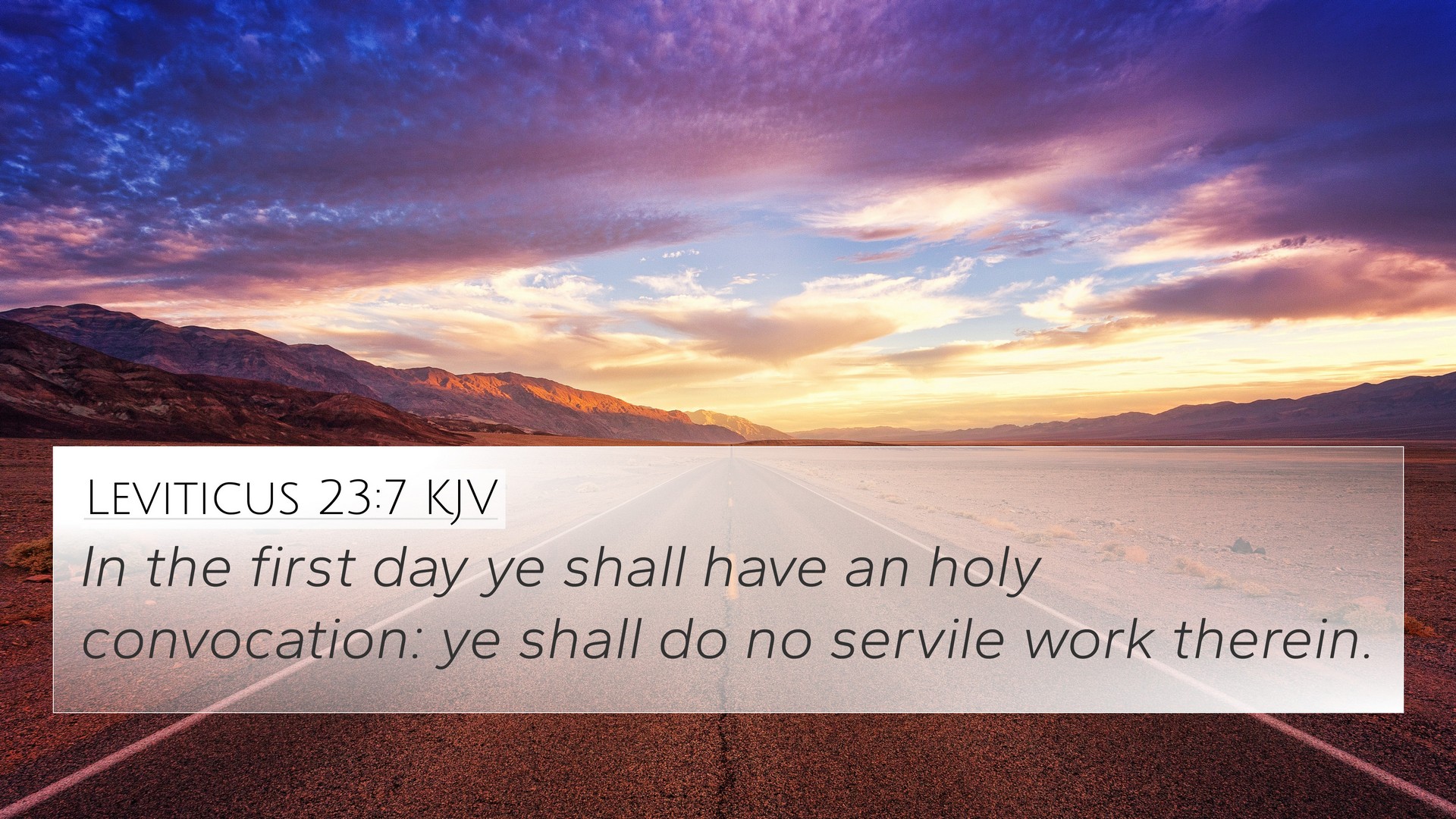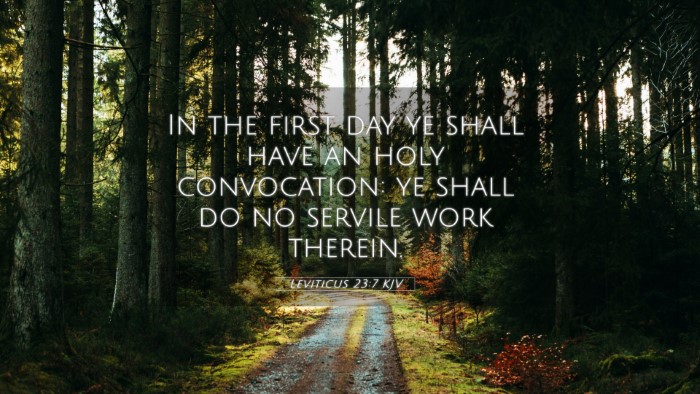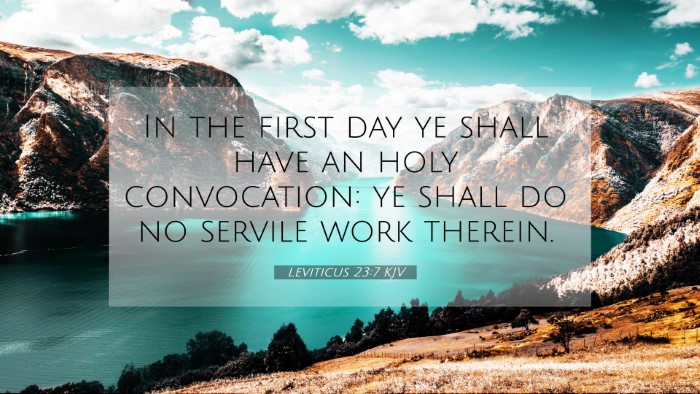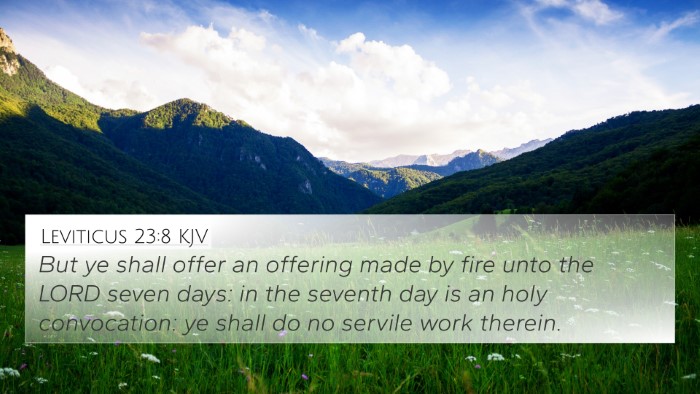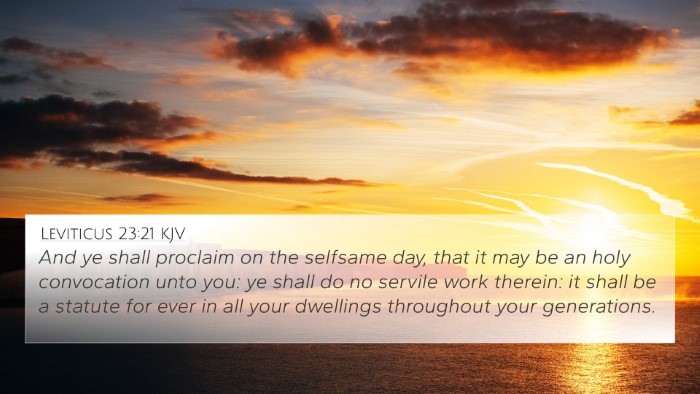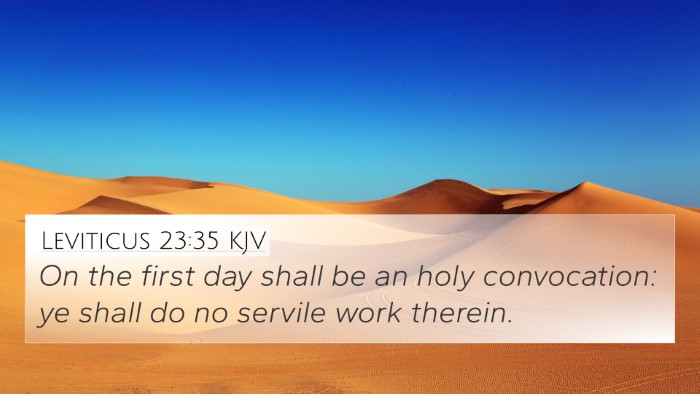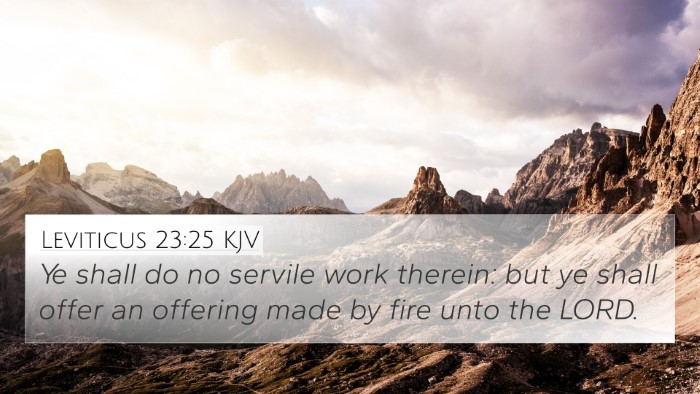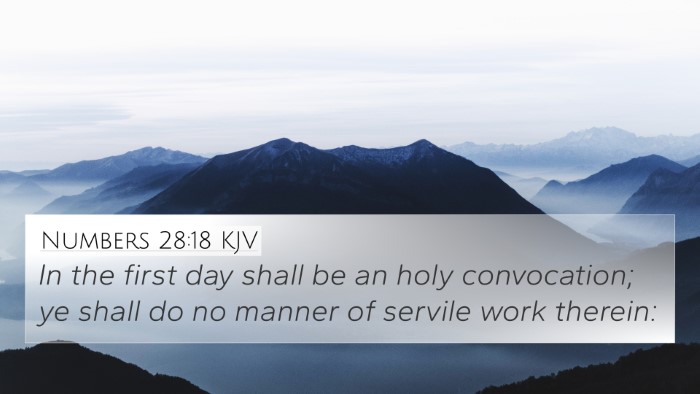Understanding Leviticus 23:7
Leviticus 23:7 states: "In the first day you shall have a holy convocation: you shall do no servile work therein." This verse is part of the description of the Feast of Unleavened Bread, which is significant in Jewish tradition and has implications for Christian understanding as well.
Verse Context and Significance
In this chapter, God outlines the festivals that the Israelites are to observe. Leviticus 23:7 emphasizes the importance of rest and sacred gatherings during holy days. This can be understood in light of:
- The nature of holy convocations: They are gatherings meant for worship and reflection on God's provision.
- The acknowledgment of God's sovereignty: Observing these festivals reaffirms the relationship between God and His people.
- The call for rest: The prohibition against "servile work" reflects God's design for His people to rest and focus on spiritual matters.
Commentary Insights
From Matthew Henry's Commentary, we learn that:
- The Israelites were instructed to set aside certain days for divine service, reinforcing community and worship.
- These days served to commemorate God's deliverance, particularly highlighting the exodus from Egypt.
Albert Barnes notes that:
- This observance called for both a cessation of work and a celebration of God's grace, aiming to keep the people's minds on spiritual truths.
- The phrase "holy convocation" indicates a time for assembly dedicated solely to the worship of God.
According to Adam Clarke's Commentary:
- The importance of this rest is stressed further by the idea that it allows for contemplation and gratitude.
- He emphasizes that these festivals serve not just as regulations but as reminders of God's eternal covenant with His people.
Cross-References to Leviticus 23:7
Leviticus 23:7 connects with several significant biblical themes and verses:
- Exodus 12:17 - Outlines the importance of the Feast of Unleavened Bread, linking to the Israelites' deliverance from Egypt.
- Deuteronomy 16:3 - Reinforces the instruction for celebrating the feast and consuming unleavened bread as a reminder of God's provision.
- Matthew 12:8 - Jesus' assertion that He is Lord of the Sabbath illustrates the significance of rest and worship.
- Hebrews 4:9-10 - Discusses the spiritual rest that remains for God's people, connecting to the concept of the Sabbath.
- Luke 22:1 - The Passover connection in the New Testament correlates with Jewish customs established in Leviticus.
- Mark 2:27 - Jesus' teaching on the Sabbath affirms its purpose beyond mere rest.
- Psalms 118:24 - Calls for rejoicing in the day the Lord has made, resonating with the spirit of Biblical festivals.
Thematic Connections and Interpretations
The core theme of rest is crucial when interpreting Leviticus 23:7. The rest mandated by God on holy days is not merely physical but also spiritual, fostering a connection between God's commands and our internal state of worship and reflection.
As we analyze the connections between Bible verses, we see how the principles established in Leviticus echo throughout Scripture. From the Pentateuch to the Gospels, the consistent call for rest and holy observance highlights God's desire for His people to prioritize their relationship with Him.
Tools for Understanding and Cross-Referencing
In conducting a cross-reference Bible study, one may utilize the following tools:
- Bible concordance: An excellent resource for finding terms and themes across Scripture.
- Bible cross-reference guide: Helps in tracing related scriptures, enhancing understanding of Biblical narratives.
- Cross-reference Bible study methods: Useful for discerning thematic links between Old and New Testament teachings.
Applying This Knowledge
Understanding Leviticus 23:7 allows us to appreciate the deeper connections within the Biblical narrative. As we study these themes and their cross-references, we can enhance our spiritual journeys and apply these teachings in our lives.
Conclusion
In conclusion, Leviticus 23:7 serves as a pivotal verse that invites both historical exploration and modern application. Recognizing the implications of Sabbath rest and holy assembly helps believers cultivate a deeper relationship with God. By engaging with cross-references and utilizing resources for inter-Biblical dialogue, individuals can enrich their understanding of the Scriptures.
References for Further Study:
- Examine how the themes of rest are developed in both the Old and New Testaments.
- Consider how the practice of holy observance impacts faith and community today.
- Reflect on the significance of divine appointments in the overall narrative of redemption.
